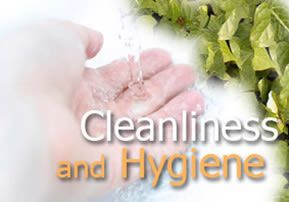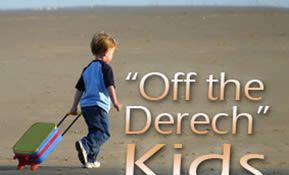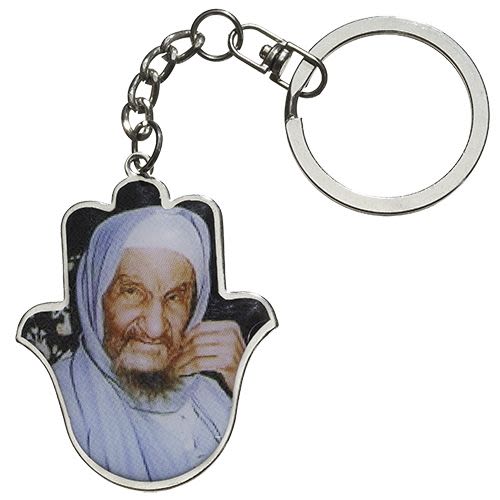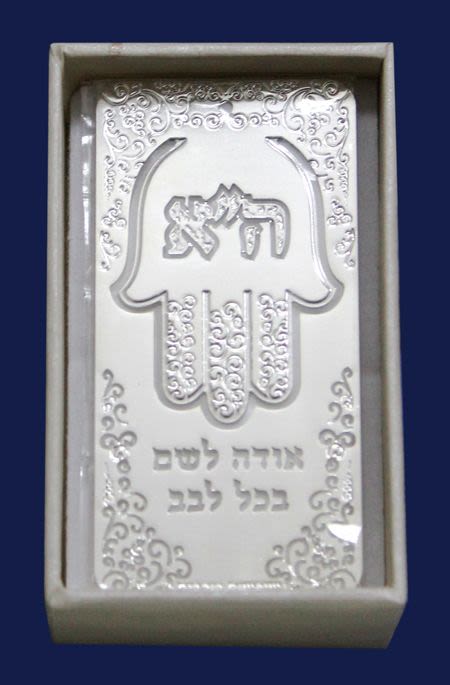
Cleanliness and Hygiene – Part 2
Everyone who is careful in these matters brings extra holiness and purity to his soul and cleanses his soul in honor of the Holy One blessed be He...

Cleanliness in puberty
Puberty is a new stage in development that parents must be aware of. As children enter this important time in their lives, parents should draw their attention to the need to take extra care to keep clean because of the physical changes in their bodies. The skin and hair are likely to become more oily. The sweat glands are more active not only when we are hot, but also as a reaction to feelings and emotions. The armpits, folds of the body, palms of the hands and soles of the feet exude a more concentrated sweat that may cause unpleasant odors.
Adolescents should be encouraged to pay greater attention to bodily cleanliness and orderly appearance, and to bath or shower, change their clothes, have their hair cut, cut their nails and so on as necessary. Where body odor is a problem, a deodorant may help. In cases of excessive sweating, consult a doctor.
One of the most widespread and troublesome problems of puberty is acne. The first step in treating acne is to keep the face clean and to wash it with tepid water a couple of times of day. Do not touch the infected areas. If the problem is particularly troublesome a doctor can recommend suitable treatment.
A Clean Mouth
Keeping the body clean applies not only to the exterior but also to the interior. Cleanliness of the mouth is of primary importance, since the mouth is one of the main channels through which microbes can enter the body. The dangers are particularly serious in the case of small children, whose understanding of what is good for them and what can harm them is still limited.
Little children have little or no sense of the boundaries they must maintain in their interaction with the environment. They do not distinguish between what they may touch and what is dangerous, what they may put in their mouths and what can harm them. Little children naturally tend to put everything they find in their mouths – their fingers, toys, and then, when they begin to crawl, whatever they find on the floor, including pieces of food, buttons, pins and worse.
As parents who want to keep our children from danger at any price, we must constantly watch them to see that they do not put anything harmful in their mouths. There are some things that everyone knows to be dangerous, but there are other hazards that not everyone is aware of:
1. Food and candies that have fallen on the floor are dirty and should not be put in the mouth unless they can be washed properly.
2. Anything that has touched one person’s mouth should not be put in someone else’s mouth. Food, candies, drinking bottles etc. should not be passed from mouth to mouth.
3. Children have a tendency to touch their shoes, socks, feet, head, dirty nose and worse. They must learn not to put their hands in their mouth or touch food without first washing their hands.
The sages prohibited eating and drinking anything that most people would find disgusting…. They also prohibited eating with dirty hands and on dirty utensils, for all these things come under the rule, “Do not make your souls loathsome…” Everyone who is careful in these matters brings extra holiness and purity to his soul and cleanses his soul in honor of the Holy One blessed be He, as it is said, “And you shall sanctify yourselves and be holy, for I am holy” (Vayikra 11:44).
Rambam, Hilchot Maachalot Asurot (Forbidden Foods) 17:29-32
Care of teeth
Healthy teeth are an important part of physical health. Healthy teeth enable us to chew our food well, which is the start of good digestion. Good teeth also help us speak clearly as well as contributing to a pleasing appearance.
The effort which parents put into keeping their children’s teeth healthy and teaching them to take proper care of them is a sound investment that can save a lot of suffering and heavy expenses later on. One of the main causes of tooth decay today is the high quantity of sugar in the average daily diet. When remains of our food stay in the mouth for extended periods, a thin layer of sugars (plaque) forms on the teeth, which encourages increased activity by bacteria, leading to tooth decay, cavities, infections, retreating gums and severe pain. Keeping the mouth and the teeth clean, especially after eating, is the main way to avoid these problems.
Parents should pay attention to their children’s teeth from the moment they begin to sprout and perhaps even before. Some parents clean their child’s gums with a soft, damp cloth after meals even before their teeth appear. Unfortunately parents sometimes bear a heavy share of responsibility for severe teeth problems among children. For some reason, many feel obligated to feed their child with a bottle whose contents are usually sweetened. The bottle remains in the child’s mouth for long periods, and not infrequently, the child falls asleep with the bottle in his mouth. Extended contact of the teeth with the sugars in the food causes increased bacterial activity that can cause “bottle caries”, deformation and premature falling of the milk teeth, and poor development of second teeth. Long before we start teaching our children to keep their teeth clean, we should do what we can to make sure their teeth are healthy in the first place!
Brushing the teeth
The first habit to teach our children to care for their teeth is regular cleaning. In order to instill this habit, it is good to early, even from the age of two or three, though initially the gains in cleanliness may be limited. To encourage the child, one can purchase a soft toothbrush and “tasty” children’s toothpaste. Later on, it is worthwhile to take the child for a dental examination – hopefully before he has any pain in his teeth. Thank God today there are dentists who specialize in treating children and are sensitive to their needs. The dentist (or assistant) will explain to the child the importance of cleaning our teeth and give him a practical demonstration.
Children should be taught to clean their teeth at least twice a day, in the morning and especially before they go to sleep at night. They should be taught that whenever possible, it is good to rinse their mouths with water after each meal, and especially after eating sweets.
Parents should reinforce the dentist’s message by giving their children practical training in how to brush their teeth. Every tooth has three exposed surfaces – outside, inside and top. One should systematically brush all the teeth in each jaw, the upper and the lower, those in front and those at the sides and back, on the right and on the left. Brushing the teeth should continue for about three minutes. One should teach children that the purpose is not so much to polish as to clean the teeth, as well as to clean between them and where they are attached to the gums.
Caring for children’s teeth is a constant process in which both parents and children have a share: The parents’ part is to make sure the children play their part by regularly brushing their teeth! Parents must find ways of encouraging their children to take proper care of teeth, such as with prizes – as long as they aren’t sweets! A dental examination is recommended twice a year.
To be continued…
***
With permission from www.azamra.org.














Tell us what you think!
Thank you for your comment!
It will be published after approval by the Editor.